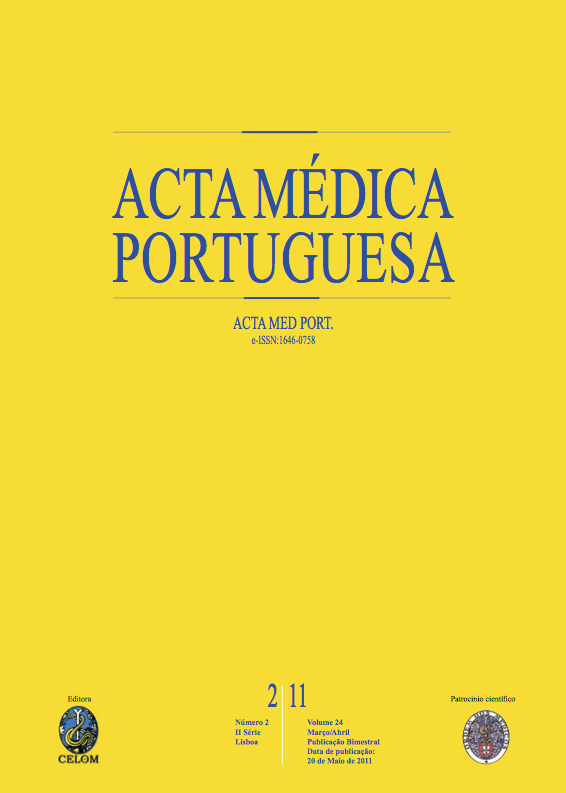Professional motivation and family medicine residency: a national study.
DOI:
https://doi.org/10.20344/amp.1624Abstract
Family medicine has some constraints, which may be considered critical for physicians' career choice, and motivation may be one of them. Motivation should be seen as a determinant of career success, particularly in educational context. The aim of this study was to develop an understanding about the family medicine residents' professional motivation, based on psychological and cognitive factors.The following objectives were set: (1) to characterize the residents, in terms of cognitive-motivational variables; (2) to evaluate their assertive skills during the vocational training.In 2005, we designed a mail survey applied to all graduates entering Family Medicine, in Portugal (N = 228), at the start of their specialty program. As part of a larger observational study, a 57 Likert scale items questionnaire was designed to collect descriptive data. In this cross sectional study we present data from professional project, professional commitment, intrinsic motivation, self-efficacy expectancies, results control expectancies, initial motivation to the specialty and assertiveness skills (cross sectional study).From the target population, 109 completed questionnaires (47.8%) were returned. Most of the participants indicated high levels of professional orientation (77.1%) for family medicine and 92.6% had been globally committed in practice. At the beginning of the residency, the participants had medium (59.6%) or high (33.9%) levels of motivation for choosing this specialty, 89% were intrinsically motivated and 60.5% proved to be quite assertive in their patient approach.These findings suggest that medical graduates, studied in this research, were globally motivated for practicing in a Family Medicine context, contradicting the overall perception of a physicians' declined interest for this specialty. These results may have implications in the design of real-life training programs for postgraduate education in Family Medicine, a time when physicians are forming expectations about their career performance and professional well-being. Future researches should continue studying more deeply the professional motivation of that population, throughout the vocational training in Family Medicine residency.Downloads
Downloads
How to Cite
Issue
Section
License
All the articles published in the AMP are open access and comply with the requirements of funding agencies or academic institutions. The AMP is governed by the terms of the Creative Commons ‘Attribution – Non-Commercial Use - (CC-BY-NC)’ license, regarding the use by third parties.
It is the author’s responsibility to obtain approval for the reproduction of figures, tables, etc. from other publications.
Upon acceptance of an article for publication, the authors will be asked to complete the ICMJE “Copyright Liability and Copyright Sharing Statement “(http://www.actamedicaportuguesa.com/info/AMP-NormasPublicacao.pdf) and the “Declaration of Potential Conflicts of Interest” (http:// www.icmje.org/conflicts-of-interest). An e-mail will be sent to the corresponding author to acknowledge receipt of the manuscript.
After publication, the authors are authorised to make their articles available in repositories of their institutions of origin, as long as they always mention where they were published and according to the Creative Commons license.









